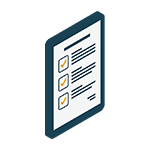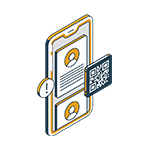Poll after poll illustrates that Americans clearly love to work from home. In fact, one Gallup Poll revealed that only six percent of employees prefer to work full-time in the office. Although most Americans enjoy working remotely, studies suggest that it may not be good for the mental health of some employees. The mental health implications of remote work aren’t fully known and affect everybody differently, but working from home can increase feelings of isolation, depression, loneliness, and anxiety.
The Pros and Cons of Remote Work
Remote work’s popularity surged during the pandemic, but as of May of 2023, more than 30 percent of jobs remain entirely remote, illustrating employee preference and the ability for many jobs to be done virtually. Remote work completely eliminates an employee’s commute to work, allows them to spend more time with their family, pursue other activities that are fulfilling to them, and gives them the flexibility needed to deal with life’s unexpected events.
A global survey conducted by Tracking Happiness found that employees who work full-time in an office reported the lowest levels of happiness. A global survey from Cisco found that 80 percent of workers said remote work had improved their work-life balance and made them happier.
In addition, studies from Forbes, Stanford University, and SHRM confirmed that working from home had no negative effect on productivity. In fact, remote workers were on average, 13 percent more productive than their in-office counterparts.
With that being said, a study from Microsoft revealed that remote work also leads employees to feel socially isolated and guilty. The line between home and work is sometimes blurred for some remote employees, sometimes leading to working around the clock.
Experts, like researchers at the American Psychological Association, say remote work is a trade-off. It all depends on how productive you are in your home office, how the isolation affects you personally, and your ability to keep things fresh. Finding a balance between convenience, good mental health, and quality work is the key to successfully working remotely.
Mental Health in Work-From-Home Settings
If you are a remote employee who experiences negative mental health side effects as a result of working from home like anxiety, depression, or loneliness, there are healthy ways to help mitigate those feelings. Researchers and experts alike have suggested a few of the following tips to help combat burnout, loneliness, and depression in remote work:
Exercising during the workday can boost both energy and productivity and helps decrease feelings of sadness.
Working with other remote employees like friends, coworkers, or family members can be a helpful way to help decrease feelings of isolation.
Working in a new setting such as a library or coffee shop can stimulate employees and helps break the monotonous feelings that come with following a set schedule.
Upgrading your home office is proven to improve productivity, decrease feelings of anxiety, and promote healthy working hours.
Taking breaks is one of the most important things you can do during your day. Breaks reenergize, refocus, and fuel employees to continue working through the day.
While Americans love to work from home, doing so may not be the best choice for the mental health of some employees. If you do work from home and find yourself feeling anxious, sad, or lonely, remember that there are ways to reduce those feelings such as taking breaks, exercising, visiting others, and even working some days in the office. Experts agree that working from home is a tradeoff and affects everybody differently, so each employee must find a balance that they are comfortable with between negative mental health effects and the convenience and flexibility that remote work provides.
Kokomo24/7® is a leader in compliance and risk management solutions for all things health and safety. Founded in 2018, Kokomo24/7® has a significant track record across Fortune 1000 companies as well as public-sector clients like Chicago Public Schools. Ask us about the time we helped host the Oscars!

 CASES™
CASES™ ESCALATE™
ESCALATE™ TRIAGE™
TRIAGE™ NOTIFY™
NOTIFY™ FORMS™
FORMS™ ANALYTICS™
ANALYTICS™ HOST™
HOST™ OWLPASS®
OWLPASS® ACCESS™
ACCESS™ WELLNESS™
WELLNESS™ CONNECT™
CONNECT™ CREDENTIALS™
CREDENTIALS™



